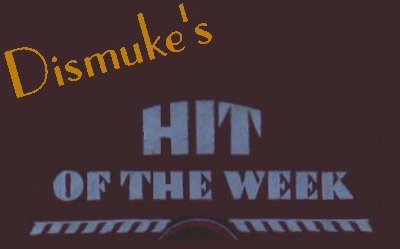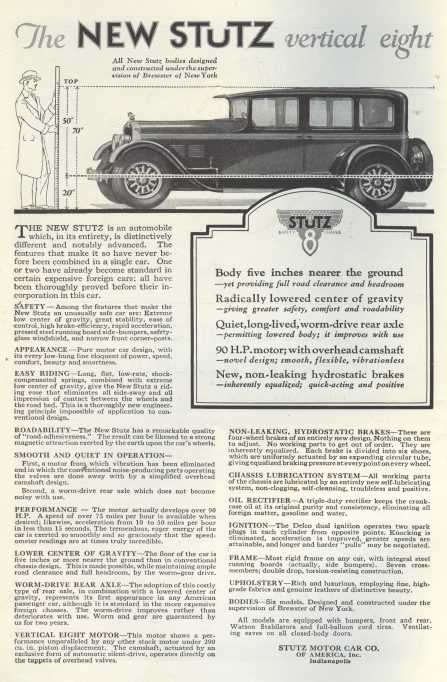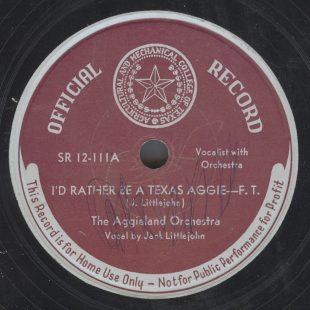

July 2009
July 31
This
week's Hit of the Week is
brought
to you by
(Click
on image for larger view)
Williams Ice-O-Matic Refrigeration
Williams Oil-O-Matic Heating Corp., Bloomington
Ill.
(from 1930 ad)
Fascinating
Devil (With Those Angel Eyes)
Elmer Grosso And His Orchestra
Jerry Macy, Ed Smalle, vocal
1930
(Champion 15957 B)
I'm
Climbing Up A Rainbow 
Elmer Grosso And His Orchestra
Jerry Macy, Ed Smalle, vocal
1930
(Champion 15957 A)
These selections come
courtesy of guest contributor Matt From College
Station. Unfortunately, I do not have a lot of biographical
information about Elmer Grosso who, in addition to leading his own
band, played both the violin and trumpet. In the early 1920s
Grosso appeared on a few recordings for Columbia as a sideman with a
jazz ensemble called the Happy Six. Between 1926 and 1930
his band cut a few dozen sides for Richmond, Indiana based
Gennett Records. Most of Grosso's Gennett recordings were also
issued on the company's Champion, Superior and Supertone subsidiary
labels as well as its flagship Gennett label. At some
point Grosso retired from the music industry and moved to Hollywood,
Florida where he was successful in the real estate industry.
"Fascinating Devil
With Your Angel Eyes" is my favorite of the two sides. It is an
upbeat, peppy song presented with a nice jazzy arrangement.
"I'm Climbing Up A
Rainbow" was introduced in the 1930 Fox Film The Big Party which starred Dixie
Lee, Frank Albertson and "Whispering" Jack Smith.
Unfortunately, the film is believed to be lost.
- Dismuke
If you have
questions or
comments about the music or would simply enjoy interacting with
friendly
people who share your interest in it, join in the conversation on Dismuke's
Message Board.
EXTRA
This section
will present
78 rpm recordings that do not fall within the range of the vintage pop
and jazz fare that I usually present. Here I will
feature
recordings from a wide variety of eras, musical genres and
nationalities
as well as occasional spoken word recordings.
Oh!
What A Thrill 
Jack Miller, vocal
1932
(Columbia 2595 D mx
152073)
You're
My Everything
Jack Miller, vocal
1932
(Columbia 2595 D mx
152072)
These
selections also come courtesy of Matt From College Station.
Jack
Miller was a vocalist who made several dozen recordings for Columia and
its subsidary labels between 1928 and 1933. Some of his
records issued on the Harmony and Velvet Tone subsidiary labels were
backed up by a group of studio musicians billed as "The New
Englanders." In 1931, Miller accepted the positon of piano
accompanyist and orchestra director for singer Kate Smith's radio and,
much later on, television programs - a position he held until
1954. You can read a very detailed biography of Jack Miller
from the ARSC Journal at the
end of this link.
(.pdf document)
- Dismuke
July 18
This
week's Hit of the Week is
brought
to you by

(Click on image for larger view)
The New Stutz Vertical Eight
Stutz Motor Car Co.
Indianapolis
(from 1926 ad)
I've
Grown So Lonesome Thinking Of You
The Clevelanders
Tom Stacks, vocal
1926
(Brunswick 3375)
Take
In The Sun Hang Out The Moon
The Clevelanders
Tom Stacks, vocal
1926
(Brunswick 3375)
Idolozing
Park Lane Orchestra
Frank Bessinger, Frank Wright, Lester O'Keefe, vocal
1926
(Brunswick 3363 B)
Just
A Little Longer Park Lane Orchestra
Park Lane Orchestra
Frank Bessinger, Frank Wright,
Lester O'Keefe, vocal
1926
(Brunswick 3363 A)
The Clevelanders and
The Park Lane Orchestra were both recording pseudonyms used by the
Harry Reser band on Brunswick records. Reser was one of the top
banjo players of the 1920s and led a band which recorded for most of
the labels of the era under a variety of pseudonyms.
Reser most famous band
during the 1920s and early 1930s was the Clicquot Club Eskimos which
appeared on the pioneering musical variety radio program of the same
name. The Clicquot Club Eskimos
was among the first of the early network radio programs to have a
commercial sponsor. The Reser band also made a number of famous
novelty recordings, many of them under the name The Six Jumping Jacks.
Recordings under the
Park Lane Orchestra pseudonym rarely featured Reser's signature peppy
banjo solos which were heavily featured on Clicquot Club Eskimos and
Six Jumping Jacks recordings. However, you can briefly hear him
play after the vocal on The Clevelander's "Take In The Sun Hang Out The
Moon." The Clevelanders pseudonym was used for
certain Reser recording sessions for Brunswick through February
1929. Later that year, the pseudonym was then used for
recordings that Reser made for the group of labels that merged to
create the newly formed American Record Corporation with the exception
of a single side for Brunswick recorded in February 1930. I am
not sure whether The Clevelanders was a name that Reser had originated
and brought with him or what sort of legal exclusivity the labels had
for the pseudonyms they used.
Tom Stacks, who
provides the vocal on the two Clevelanders selections, was Reser's
drummer and primary vocalist. He is best remembered for his comic
novelty vocals on Reser's Six Jumping Jacks recording
sessions. On February 12, 1936, Stacks was playing drums
with the Earl Carpenter band for a Catholic Holy Name Society party at
Lum's Chinese Restaurant located on the second floor of 735 Lexington
Avenue in New York City when a fire broke out in one of the building's
ground floor shops. The fire quickly spread to the restaurant and
set off a stampede among the 150 who were inside. Stacks
initially escaped the building but went back to retrieve his
drums. He died a week later in the hospital from burns to the
hands and face.
- Dismuke
If you have
questions or
comments about the music or would simply enjoy interacting with
friendly
people who share your interest in it, join in the conversation on Dismuke's
Message Board.
EXTRA
This section
will present
78 rpm recordings that do not fall within the range of the vintage pop
and jazz fare that I usually present. Here I will
feature
recordings from a wide variety of eras, musical genres and
nationalities
as well as occasional spoken word recordings.


(Tulia Herald, July 16, 1942)
I'd
Rather Be A Texas Aggie
The Aggieland Orchestra
Jack Littlejohn, vocal
circa 1940
(Official Record SR 12
111A)
The
Aggie War Hymn and The Sprit of Aggieland 
Texas A&M College Concert Band
circa 1940
(Offical Record
SR 12 113 B)
Here is a
record that was privately issued by Texas A&M College (now Texas
A&M University). I do not have an exact date for the
recording - but my strong guess is that it is from 1940 based on the
fact that it was the year that "I Would Rather Be A Texas Aggie"
was published and it was the year that the song's composer and the
vocalist on this recording, Jack Littlejohn, graduated from the
school. I have seen a reference which suggests
that the song might have been featured in the 1943 film We've Never Been Licked, parts of
which were filmed on the Texas A&M campus.
Unfortunately, I have not been able to verify that for sure.
Jack
Littlejohn was a vocalist and arranger of the Aggieland Orchestra, a
student band which for a while also included Littlejohn's brother
Thomas M. Littlejohn, Jr who graduated in 1939. A newspaper
article announcing a 1937 appearance by the band in Corpus Christi,
Texas described it as primarily specializing in swing music.
During
World War II, Jack Littlejohn served in the Army Air Corps as a
lieutenant colonel. After the war, both Littlejohn brothers
returned to their hometown of Tulia Texas where they owned a grocery
business.
If you have
questions or
comments about the music or would simply enjoy interacting with
friendly
people who share your interest in it, join in the conversation on Dismuke's
Message Board.
July 11
This
week's Hit of the Week is
brought
to you by

Ideal
Power Mowers
(from 1928 ad)
Hop
Off
Fletcher Henderson & His Orchestra
1928
(Brunswick 4119)
I
Must Have That Man
Broadway Broadcasters
1928
(Brunswick 4119)
Here is one of several
interesting Fletcher Henderson records that I acquired a few months
ago. "Hop Off" is a Fats Waller composition that the
Henderson band had previously recorded in November 1927 for Columbia -
though that recording remained unissued until the early 1940s.
Most likely the Henderson band also recorded the song in October 1927
on the Paramount label under the pseudonym of The Louisiana Stompers -
though some have raised the question as to whether it actually was
Fletcher Henderson's band on the Paramount recording. The
Brunswick version featured here was recorded in Chicago on September
14, 1928.
"I Must Have That Man"
was a successful song from the Lew Leslie production Blackbirds of 1928 which featured
an all-black cast. The name "Broadway Broadcasters" was
mostly used as a recording pseudonym for Sam Lanin and His Orchestra on
late 1920s labels affiliated with with Cameo. The band on this
recording - which had no connection with the Lanin band - cut
three sides for Brunswick October 30, 1928, all of them issued
under the Broadway Broadcasters pseudonym. The only
personnel from the session I have been able to find listed is Ray
Lodwig and Tommy Gott.
- Dismuke
If you have
questions or
comments about the music or would simply enjoy interacting with
friendly
people who share your interest in it, join in the conversation on Dismuke's
Message Board.
EXTRA
This section
will present
78 rpm recordings that do not fall within the range of the vintage pop
and jazz fare that I usually present. Here I will
feature
recordings from a wide variety of eras, musical genres and
nationalities
as well as occasional spoken word recordings.
Die
Songs Der Driegroschenoper Part 1
Carola Neher, Kurt Gerron, Arthur
Schröder
1929
(HMV EH 301 mx 4 049308)
Die
Songs Der Driegroschenoper Part 2
Carola Neher, Kurt Gerron
1929
(HMV EH 301 mx 4 049309)
Aufsteig
Und Fall Der Stadt Mahagonny Part 1
Lotte Lenja Mit Grossem Ensemble
Un Orchester Des Theaters Am Kurfürstendamm
1932
(HMV Z 224 mx 2D 748)
Aufsteig
Und Fall Der Stadt Mahagonny Part 2
Lotte Lenja Mit Grossem Ensemble
Un Orchester Des Theaters Am Kurfürstendamm
1932
(HMV Z 224 mx 2D 749)
I will
begin this section with a disclaimer that I personally find all four of
these recordings to be mostly horrible.
These most emphatically do NOT represent my taste in music. I
include them, however, because they certainly fit within the time frame
this site covers and because it provides the "other side" to the late
Wiemar era scene that is very much different to the salon music,
Viennese operettas and peppy jazz recordings that I often feature from
that time and place.
The first
two selections are medley recordings from the 1928 Bertolt Brecht /Kurt
Weill musical Die Dreigroschenoper
(The Threepenny Opera)
which starred Weill's wife Lotta Lenya. These recordings feature
artists who appeared in the production.
Die Dreigroschenoper is best remembered for
introducing the song "Mack The Knife" which you can hear in its
original version towards the end of the second
selection. Louis Armstrong recorded the song in
1956. Bobby Darin's 1958 recording of the song topped the
charts in 1959 and earned him a Grammy.
Oddly enough, while I am NOT generally a fan of Weill's
works, I do enjoy both the Armstrong and Darin recordings of the
song. When Armstrong made his recording, Lotta Lenya
was in the studio which inspired Armstrong to improvise the now famous
line in the lyrics "Look out for Miss Lotte Lenya!"
Two of the
artists featured in the Die Dreigroschenoper recordings ended up being
murdered by the totalitarian regimes that dominated events in Europe in
the 1930s and 1940s. Kurt Gerron was a very
successful actor who appeared on stage and with Marlene Dietrich in the
1930 film The Blue Angel.
When the National Socialists came to power, Gerron fled to
Holland. However, when that country fell to German occupation
during World War II he was taken into custody and sent to the
Theresienstadt concentration camp. At Theresienstadt,
Gerron was forced to direct a propaganda film staging scenes depicting
the inhabitants as being happy and well-treated. After
shooting on the film ended, Gerron was transferred to Auschwitz where
he was murdered immediately after his arrival.
Carola
Neher appeared in several Bertolt Brecht productions before she was
forced to flee Germany. An ardent communist, she and her husband
moved to the Soviet Union in 1934. In 1936, during the
Stalinist purges, Neher and her husband were arrested after
having been denounced as Trotskyites by a fellow German actor.
Her husband was executed in 1937 and she died in a Soviet Gulag in
1942.
Aufsteig Und Fall Der Stadt Mahagonny
(Rise and Fall of the City of
Mahagonny) is a Bertolt Brecht/ Kurt Weill opera which debuted
in Leipzig in March, 1930. The Leipzig performance was
disrupted by Nazi sympathizers. A revised version
eventually opened in Berlin at the Theater am Kurfürstendamm in
December 1931 with Lotte Lenya in the role of Jenny. The recordings here
feature Lenya and the ensemble from the cast.
To provide
a feel for what the production was like, here is how it is described
by a commentator who has a positive opinion of it:
The original
Brecht production of Mahagonny, as with his other plays, utilized
various contrivances to prevent viewers from being lulled into a
theatrical fantasy. Stage settings were deliberately sparse and flooded
with harsh lights, with no attempt to hide stage lighting equipment.
Slogans and explanatory text were projected upon stage walls, and
actors carried placards onstage bearing political messages. With
outbursts of songs whose lyrics drove home his political points, Brecht
would use music itself to interrupt stage action.
You can read a synopsis of Brecht's storyline
for the opera here.
My take on it is that the story is as senseless and chaotic as what you
hear on the recordings.
Mahagonny
and all of Brecht's other works were outlawed in Germany once the
National Socialists took power. Undoubtedly Brecht would have
been persecuted and almost definitely murdered had he remained in that
country. But it is interesting to note that Brecht himself was a
staunch admirer of Joseph Stalin and, when asked about the number of
innocent people being killed by the Stalinist purges, he famously
replied: "The more innocent they are, the more they deserve to
die." Even the deaths of Carola Neher, his former mistress
who had starred in his plays, and other former associates at the hands
of the Soviet regime did not diminish his support for it. In
1949, he moved to East Germany as a staunch and loyal supporter of that
country's Stalinist dictatorship. In other words, Brecht had a
mindset that was not much different from the that of the thugs in
Germany who disrupted and eventually outlawed his plays - his
allegiance was simply with a rival gang.
Personally, I cannot stand the sort of "art"
that Brecht championed and I find these recordings to be very
unpleasant to listen to. But unlike Nazis and Communists,
civilized people do not seek to silence or criminalize art and
viewpoints that they disagree with.
- Dismuke
If you have
questions or
comments about the music or would simply enjoy interacting with
friendly
people who share your interest in it, join in the conversation on Dismuke's
Message Board.

|



